Mixed reactions to former Ivorian president Laurent Gbagbo’s acquittal
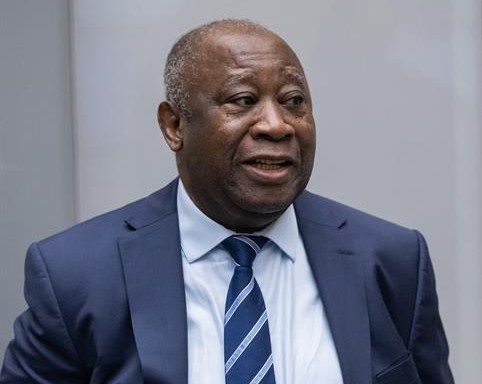
Updated on January 18
BY JIBRIL TURE
(With reporting by field correspondent Idriss Kone)
The International Criminal Court (ICC) Tuesday acquitted the former president of Cote d’Ivoire, Laurent Gbagbo, and his former youth minister Charles Blé Goudé who had been held at the Hague on the accusation of crime against humanity. At the time of this writing, the two men are yet to recover their freedom, owing to an appeal by the prosecution. But reactions were swift back home in Cote d’Ivoire, ranging from jubilation by the former president’s supporters, to condemnation of the decision by victims of the post-election civil war that resulted in Gbagbo’s arrest in 2011, while analysts weighed on the decision.
Laurent Gbagbo was arrested by Ivorian law enforcement and taken in custody by the ICC in April 2011 after his refusal to step down after losing the November 2010 run-off, U.N.-supervised presidential election to Alassane Ouattara. His then-youth minister, Charles Blé Goudé, was apprehended four years later in Accra where he fled to in exile. The charges of crime against humanity cover murder, rape, persecution and other inhumane acts the two defendants allegedly committed between 16 December 2010 and 12 April 2011 during the post-election war that claimed 3,000 lives.
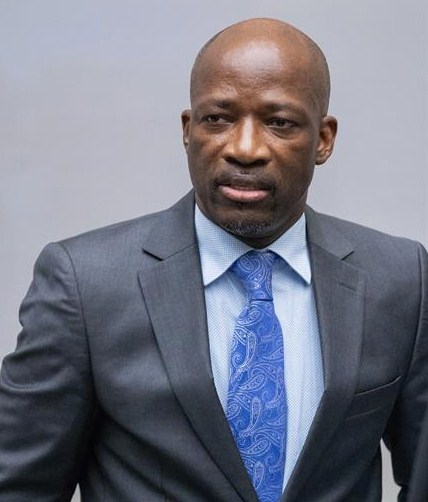
The trial began on 28 January 2016 and saw the testimonies of 82 witnesses and thousands of documents as evidence presented by the prosecution in the course of 231 hearing days. On 4 June 2018, the chamber closed the presentation of the evidence by the prosecutor. Then, upon the filing of various motions by the defense of both men, the acquittal came down on Tuesday 15 January.
The next day, the Trial Chamber I of the court saw no reason not to release both Gbagbo and Blé Goudé from ICC detention immediately. But the prosecution wasted no time in appealing the case, asking the judges not to release the two men, or do so under stringent conditions to make sure they do not flee justice. Then the presiding judge, Cuno Tarfusser, said a majority of the three-judge panel has rejected the prosecution’s request. Tarfusser said:
“Both Mr. Gbagbo and Mr. Ble Goude have recognized the court’s jurisdiction and have undertaken to return to the court if and when their presence is required.”
This paved the way for the men’s release once the necessary logistical formalities are in place. Then, following another appeal by the prosecution late on Wednesday, the release was put on hold until the court reviews the case on Thursday 17 January. Following the review, Gbagbo and his former minister are remaining in detention until the next court’s action, possibly in February.
Reactions back home in Cote d’Ivoire didn’t wait for these developments to unfold. The former president’s supporters in various parts of Abidjan (including densely-populated Yopougon whose inhabitants are predominantly supporters of the ruling party), took to the streets by the hundreds chanting “Gbagbo is free! Seven years of injustice! Let them relinquish the power now! Gbagbo ayo!!” Some were showing their fists while others were showing the victory sign.
Mathurin Lobougnon, apparently in his late twenties, told “The African Magazine,” shouting:
“It’s a new day in Cote d’Ivoire. Justice has prevailed. Too many lives lost at the hands of Ouattara and Soro. Gbagbo will come and clean the mess brought about by Ouattara!”
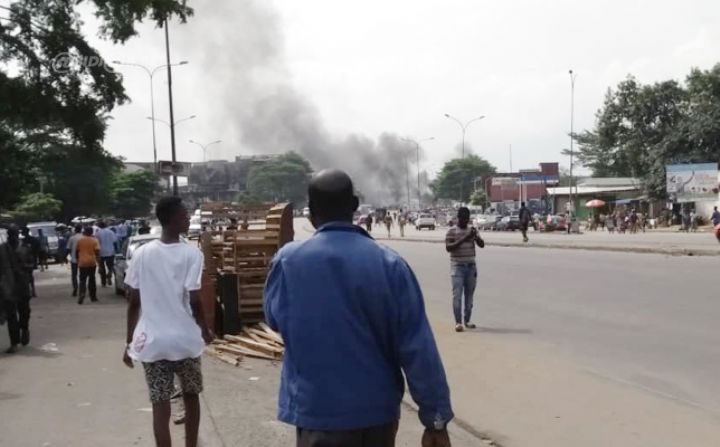
By contrast, in Abobo, another densely-populated neighborhood in Cote d’Ivoire’s largest city and economic hub, and Anyana, people claiming to be victims of the post-election civil war also took to the streets to protest the decision to acquit Gbagbo. They blocked the streets to the areas and burned tires. It took a massive police presence to bring back order at the end of the day, but the local stores remained closed for fear of looting.
Assetou Kone, 44, who sells produce in the local market, pleaded to “The African Magazine:”
“We are all for peace. We don’t want the repeat of the war that destroyed lives and properties. Both of my parents died in the war. But how can we get peace if the same person [Gbagbo] who is responsible for the loss of lives and destruction of properties is not held accountable? You tell me!”
The much-anticipated government’s reaction came also in no time. In a press release Wednesday after the weekly cabinet meeting, Sidi Touré, the government’s spokesperson, minister of communication and the media, said “It will be his [Gbagbo’s] decision to return to Cote d’Ivoire.” But, an ambiguous statement by the Justice minister, Sansan Kambilé, sounded rather troubling to Gbagbo’s supporters and to some members of the civil society “The African Magazine” talked to over the phone Wednesday:
“Concerning Mr. Laurent Gbagbo, let me tell you that dating back to 2011, new processes have been undertaken against several people. I have no further information. At the opportune time, if he [Gbagbo] is in Cote d’Ivoire, we will decide.”
The minister also said the Ivorian government has nothing to do with processes undertaken by the ICC, adding: “The states are not the ones who try. The state has to cooperate.”
Former president Henri Konan Bedie, chairman of the oldest political party, PDCI-RDA, added his voice to the reactions in a rather cozy way. In a press release on Tuesday, he stated:
“This decision surely appears to me as an opportunity to increase the chances for national reconciliation and strengthening a lasting peace in our country. […] I wish him a happy new year 2019 and a safe return home in his family.”
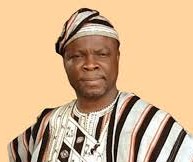
In a statement to “The African Magazine,” Benin politician and economist Bertin Koovi, who, just a few days ago, was awarded an honorary doctorate in fundamental economics by several Latin American universities, stated from Florianopolis, in Brazil where he received the honor:
“With his release, Gbagbo has given the world a lesson in the value of faith. He never stopped claiming his innocence and propheticizing his release.”
Koovi also praised Charles Blé Goudé’s loyalty, saying that “Blé Goudé never tried to turn against Gbagbo in search for his own salvation.” Koovi goes on to say:
“Laurent Gbagbo and Blé Goudé have been acquitted, but Alassane Ouattara and Henri Konan Bedie have never had anything to fear. So, who is responsible for the 3000 deaths? The whole Ivorian crisis is rooted in the concept of “ivoirite” crafted by Bedie. Bedie may not be guilty, but he is responsible.”
Koovi points a finger at what he calls “international imperialism” that, he says, was eager to subjugate Cote d’Ivoire to control its wealth, even at the cost of a river of blood, by making sure Gbagbo was ousted.
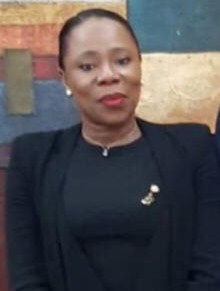
Paris-based Ivorian political analyst and commentator Gouza Nahounou strikes a different note. She feels Gbagbo’s release is in line with President Ouattara’s “persistent effort toward national reconciliation.” She recalled and praised Ouattara’s decision to free the former Ivorian first lady Simone Gbagbo several months ago “as an important gesture toward peace and national reconciliation.” “President Ouattara must be thrilled about this development, Nahounou states.” At any rate, Nahounou says,
“Though the details of the release of Gbagbo and Blé Goudé are still murky at this time, let’s appreciate the judges’ decision and wish that violence does not return to Cote d’Ivoire. The hard feelings are all-too present. Let each and everyone of us behave as a good citizen.”


